Home>Storage & Organization>Closet & Wardrobe Organization>How To Organize A Craft Closet
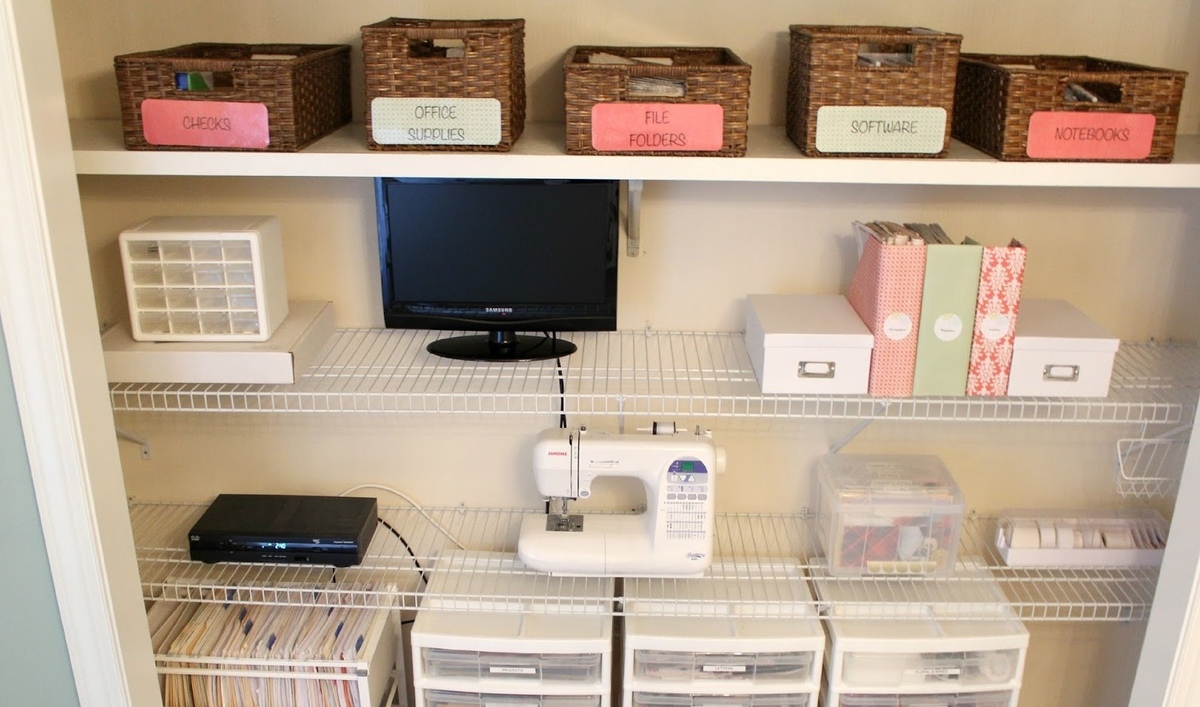

Closet & Wardrobe Organization
How To Organize A Craft Closet
Published: March 3, 2024
Learn how to efficiently organize your craft closet with our expert tips and ideas. Get inspired to declutter and maximize your closet space for a more functional and stylish storage solution.
(Many of the links in this article redirect to a specific reviewed product. Your purchase of these products through affiliate links helps to generate commission for Storables.com, at no extra cost. Learn more)
Assessing Your Craft Supplies
Before diving into organizing your craft closet, it's essential to assess your craft supplies. This step will help you understand the types and quantities of items you have, allowing you to plan the organization effectively. Start by gathering all your craft supplies in one central location, whether it's on the floor, a table, or even your bed. Take stock of everything you have, from yarn and fabric to paints and brushes. This process will give you a clear picture of the scope of your craft collection and help you determine the best way to store and organize each item.
Key Takeaways:
- Get organized by sorting, categorizing, and decluttering your craft supplies. Choose storage solutions like shelving units, clear plastic bins, and drawer units to keep your closet tidy and functional.
- Maximize vertical space in your craft closet with wall-mounted shelves, hanging rods, and stackable storage units. Regularly maintain and update your organization to ensure easy access to your craft supplies.
Read more: How To Organize Shorts In A Closet
Sorting and Categorizing Items
Sorting and categorizing your craft supplies is a crucial step in organizing your craft closet. Start by grouping similar items together. For example, gather all your yarn in one place, your paints in another, and your fabric in yet another. This process will help you see how much of each type of item you have and make it easier to decide on storage solutions. Once you have everything grouped, further categorize each group. For instance, if you have different colors of yarn, consider organizing them by color. Similarly, if you have various types of fabric, you might want to separate them by material or pattern. The key is to create categories that make sense to you and align with how you use your craft supplies.
After sorting and categorizing your items, consider decluttering. Take a close look at each category and assess whether there are items you no longer need or use. This is an excellent opportunity to donate or discard items that no longer serve a purpose in your crafting endeavors. By reducing the number of items in each category, you'll not only free up space in your craft closet but also make it easier to find and access the items you truly value.
Once you've sorted, categorized, and decluttered your craft supplies, you'll have a clear understanding of what you need to store and organize. This will set the stage for the next steps in creating an efficiently organized craft closet.
Choosing Storage Solutions
When it comes to organizing a craft closet, choosing the right storage solutions is paramount. The key is to select storage options that not only fit the space available but also accommodate the specific needs of your craft supplies. Here are some popular storage solutions to consider:
-
Shelving Units: Installing shelving units in your craft closet can provide ample space for storing items such as bins, baskets, and containers. Adjustable shelves offer flexibility, allowing you to customize the spacing based on the height of your supplies.
-
Clear Plastic Bins: Clear plastic bins are a popular choice for storing craft supplies as they allow you to see the contents without having to open each container. Opt for stackable bins to maximize vertical space and keep your closet tidy.
-
Drawer Units: Utilizing drawer units can be an efficient way to store smaller craft items such as beads, buttons, and sewing notions. Consider transparent or labeled drawers for easy identification of contents.
-
Pegboards: Installing a pegboard on the inside of your craft closet door or on the wall can provide a versatile storage solution for hanging tools, ribbons, and other supplies. Utilize hooks, baskets, and shelves to keep frequently used items within reach.
-
Cubbies and Dividers: Cubbies and dividers are excellent for organizing items that may not stack well, such as fabric, scrapbook paper, or books. They provide separate compartments, keeping different types of supplies neatly separated.
-
Over-the-Door Organizers: Over-the-door organizers can maximize space by utilizing the back of the closet door for storage. These organizers come in various configurations, including pockets, hooks, and racks, offering versatile storage options for a range of craft supplies.
When selecting storage solutions, consider the accessibility of your craft supplies. Items used frequently should be easily reachable, while those used less often can be stored in less accessible areas. Additionally, take into account the aesthetics of the storage solutions. Opt for options that not only provide functionality but also contribute to the overall visual appeal of your craft closet. By carefully choosing storage solutions that align with your specific needs, you can create an organized and efficient space for your craft supplies.
Labeling and Organizing Containers
Labeling and organizing containers is a crucial step in maintaining a well-structured craft closet. Once you have chosen the appropriate storage solutions for your craft supplies, the next step is to label and organize the containers. Proper labeling not only helps you locate items quickly but also ensures that everything is returned to its designated place after use.
Importance of Labeling
Labeling containers is essential, especially when dealing with a variety of craft supplies. Whether you opt for clear plastic bins, drawer units, or cubbies, labeling allows you to identify the contents at a glance. This is particularly helpful when you have multiple containers of similar appearance, preventing the need to open each one to find what you need. Additionally, labeling promotes consistency and orderliness, making it easier to maintain the organization of your craft closet over time.
Read more: How To Organize A Utility Closet
Tips for Effective Labeling
When labeling containers in your craft closet, consider the following tips for maximum efficiency:
-
Clear and Legible: Ensure that your labels are clear and legible, using a font size and style that is easy to read. If using handwritten labels, use a permanent marker or label maker to prevent smudging or fading over time.
-
Descriptive: Be descriptive in your labeling, especially for containers that store multiple types of items. For example, instead of simply labeling a bin as "Notions," you could specify "Sewing Notions" or "Knitting Notions" for better categorization.
-
Consistent Format: Maintain a consistent labeling format throughout your craft closet. Whether it's color-coding, using specific categories, or arranging labels in a particular manner, consistency promotes a cohesive and organized look.
-
Placement: Place labels where they are easily visible, such as on the front or top of containers. This ensures that the labels are readily accessible and identifiable, even when the containers are stacked or stored in tight spaces.
-
Update as Needed: As your craft supplies evolve, be prepared to update and revise your labels accordingly. This may involve adding new categories, removing outdated labels, or adjusting the contents of containers as your crafting interests change.
Organizing Containers
In addition to labeling, organizing the containers within your craft closet is essential for maintaining a functional and visually appealing space. Consider the following strategies for organizing containers effectively:
-
Grouping Similar Items: Arrange containers with similar items together to create designated zones within your craft closet. For example, group all sewing-related containers in one area and painting supplies in another.
-
Accessibility: Store frequently used items in easily accessible containers, while less frequently used items can be placed in higher or lower shelves or less accessible areas.
-
Stacking and Nesting: Utilize stackable and nestable containers to maximize vertical space and create a tidy, space-efficient storage system.
-
Maintaining Clear Pathways: Ensure that pathways to your craft supplies are clear and unobstructed. Avoid overcrowding or blocking access to containers, making it easy to retrieve and return items.
By implementing effective labeling and organizing strategies, you can ensure that your craft closet remains well-structured and conducive to your creative endeavors. These practices not only streamline the crafting process but also contribute to a visually appealing and harmonious storage space for your beloved craft supplies.
Utilizing Vertical Space
When it comes to organizing a craft closet, making the most of vertical space is a game-changer. By utilizing the vertical dimension of your closet, you can significantly increase the storage capacity and accessibility of your craft supplies. Here are some effective strategies for maximizing vertical space in your craft closet:
Wall-Mounted Shelves
Installing wall-mounted shelves is an excellent way to take advantage of vertical space. These shelves can be customized to fit the specific dimensions of your craft closet, allowing you to store items such as bins, baskets, and containers. Consider adjustable shelving units that can be easily repositioned to accommodate different-sized craft supplies.
Read more: How To Organize Pants In A Closet
Hanging Rods and Hooks
Incorporating hanging rods and hooks in your craft closet provides a versatile solution for storing items such as ribbons, tapes, and tools. By hanging these supplies, you not only free up shelf and floor space but also keep them easily accessible. Utilize S-hooks, pegs, or specialized hangers to maximize the use of hanging space.
Overhead Storage
If your craft closet has high ceilings, consider utilizing overhead storage options. This can include installing overhead shelves or utilizing hanging storage systems suspended from the ceiling. Overhead storage is ideal for items that are used less frequently, keeping them out of the way while still accessible when needed.
Stackable Storage Units
Opting for stackable storage units allows you to efficiently use vertical space while maintaining a neat and organized closet. Whether it's stackable bins, drawers, or cubbies, these units can be stacked to the ceiling, making the most of the available height in your craft closet.
Door-Mounted Organizers
Maximize vertical space on the back of your craft closet door by installing door-mounted organizers. These organizers come in various configurations, including pockets, racks, and hooks, providing additional storage for small items, tools, or supplies that you want to keep within easy reach.
By implementing these strategies, you can transform your craft closet into a well-organized and efficient space that maximizes vertical storage. Making use of the often underutilized vertical dimension not only increases the capacity of your craft closet but also enhances accessibility and overall functionality.
Read more: How To Organize Sweaters In Closet
Maintaining and Updating Organization
Maintaining an organized craft closet is an ongoing process that requires regular attention and upkeep. To ensure that your craft supplies remain well-organized and easily accessible, it's essential to establish routines for maintaining and updating the organization of your craft closet. Here are some practical tips for keeping your craft closet in top shape:
Regular Maintenance
Regularly set aside time to assess the organization of your craft closet. This can be done on a weekly, monthly, or seasonal basis, depending on the frequency of your crafting activities. During these maintenance sessions, take the time to tidy up any disarray, return items to their designated places, and address any clutter that may have accumulated.
Reevaluation of Storage Needs
As your crafting interests and projects evolve, your storage needs may change. Periodically reevaluate the effectiveness of your current storage solutions and make adjustments as needed. This may involve reorganizing categories, adding new storage containers, or repurposing existing space to better accommodate your craft supplies.
Inventory Check
Performing an inventory check of your craft supplies can help you stay informed about the items you have and those you may need to restock. Take note of any depleted or nearly empty supplies and create a shopping list for replenishing essential items. This proactive approach ensures that you always have the necessary materials on hand for your crafting endeavors.
Read more: How To Organize Leggings In Closet
Maintenance of Labels
Over time, labels on containers may become worn, faded, or outdated. Regularly inspect and maintain the labels in your craft closet to ensure that they remain clear, legible, and accurate. Replace any damaged or illegible labels to maintain a cohesive and organized system of identification.
Seasonal Organization
Consider adapting the organization of your craft closet to align with seasonal crafting projects. For example, during the holiday season, you may need to access specific supplies for festive crafts, while in the spring, you might prioritize gardening-related projects. Adjust the organization of your craft closet to accommodate the seasonal influx of materials and tools.
Incorporating Feedback
If you share your crafting space with others, such as family members or roommates, consider incorporating their feedback and suggestions for improving the organization of the craft closet. Collaboratively discussing and implementing organizational strategies can lead to a more inclusive and functional space for everyone involved.
By integrating these maintenance and updating practices into your crafting routine, you can ensure that your craft closet remains a well-organized and efficient space. Consistent attention to the organization of your craft supplies not only streamlines your crafting process but also fosters a sense of creativity and inspiration within your dedicated crafting space.
Frequently Asked Questions about How To Organize A Craft Closet
Was this page helpful?
At Storables.com, we guarantee accurate and reliable information. Our content, validated by Expert Board Contributors, is crafted following stringent Editorial Policies. We're committed to providing you with well-researched, expert-backed insights for all your informational needs.


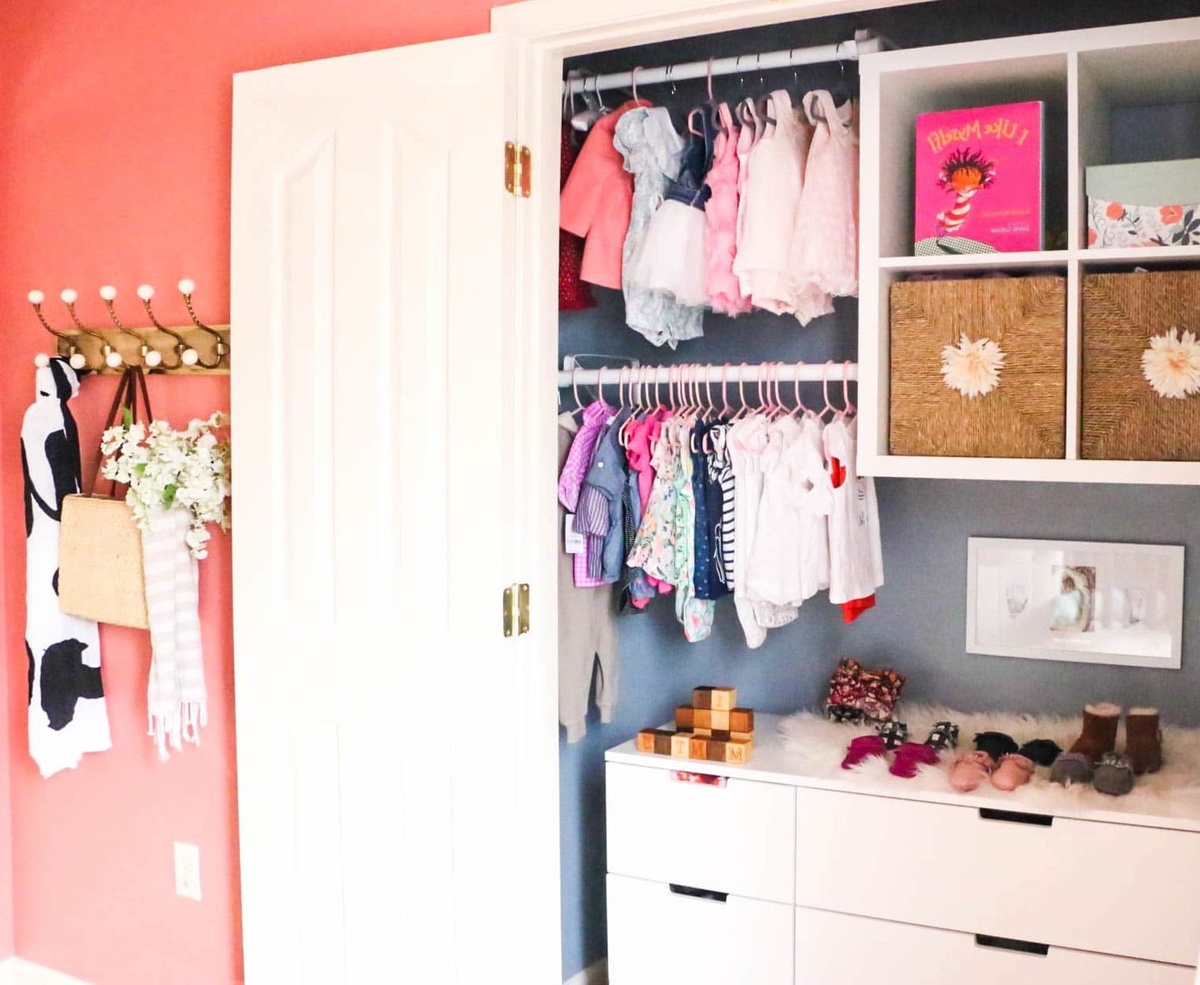
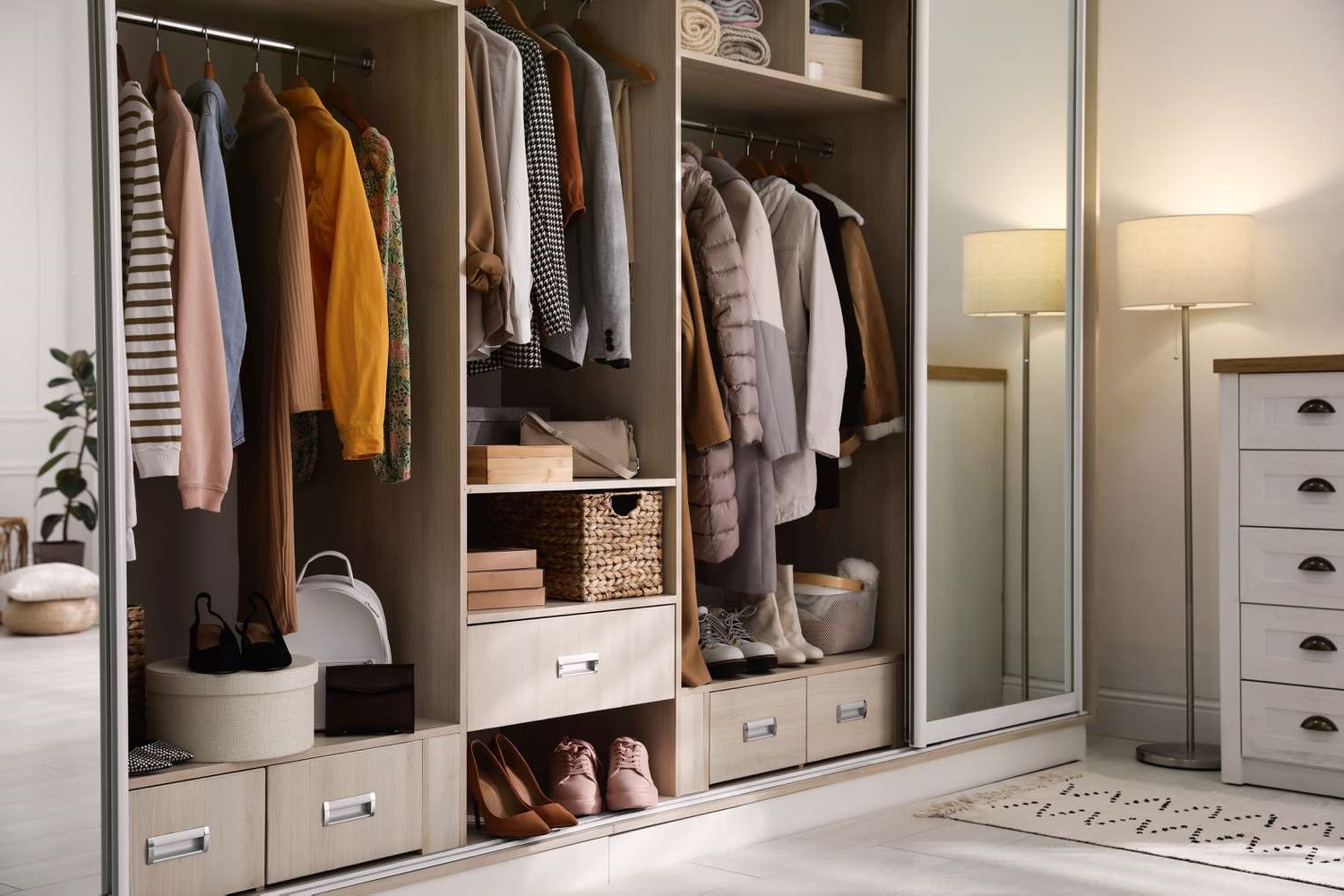

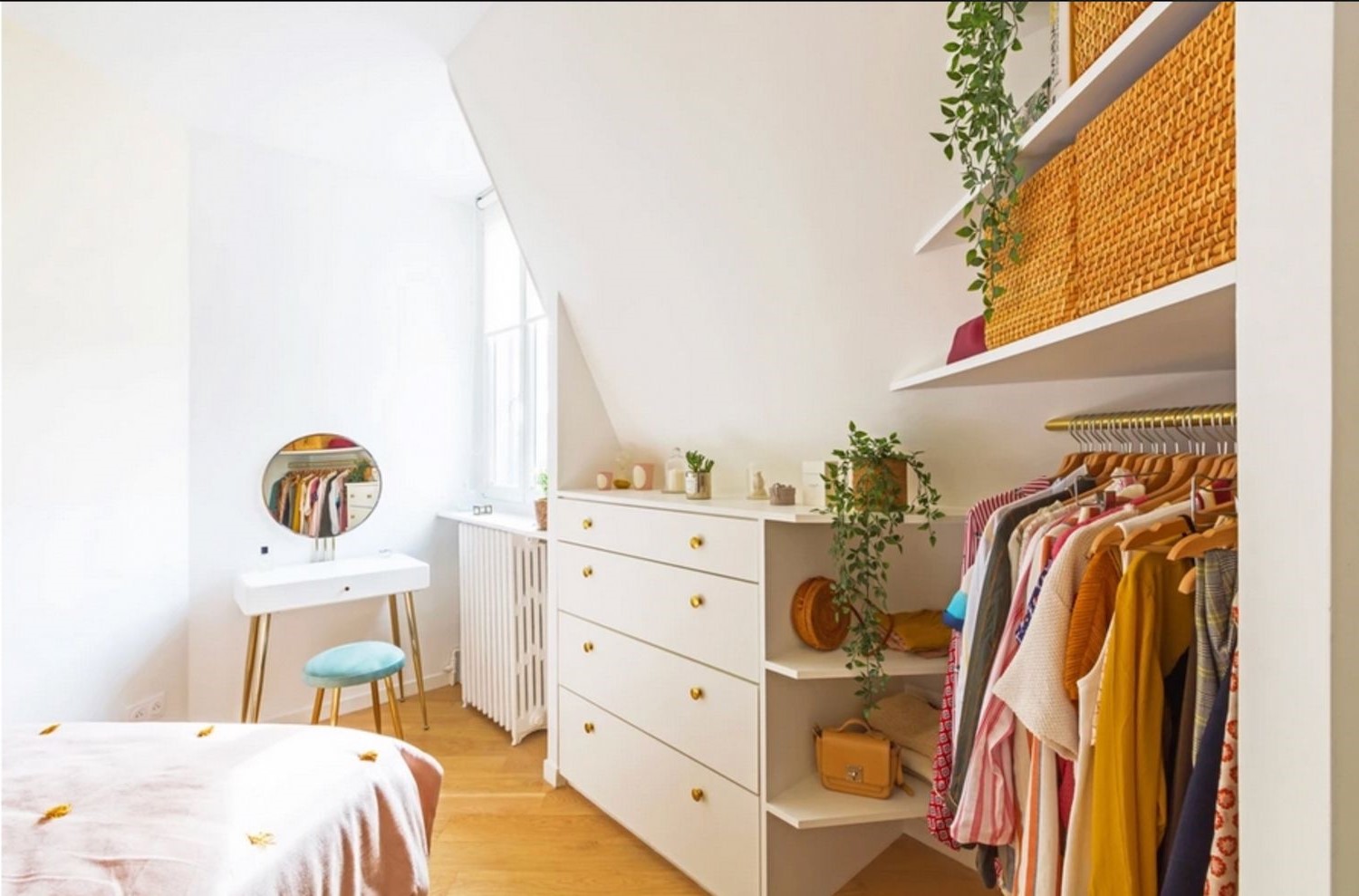
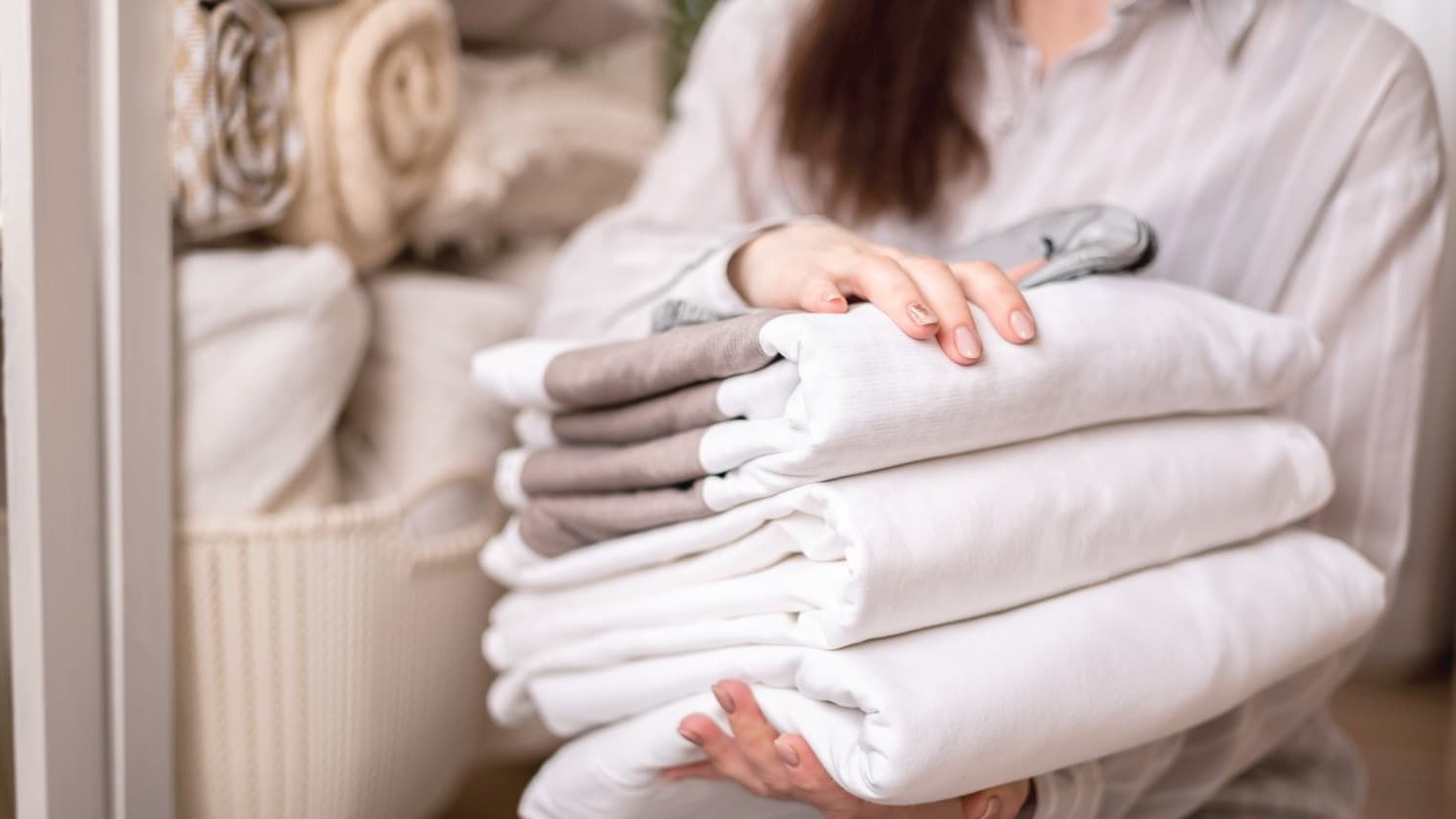
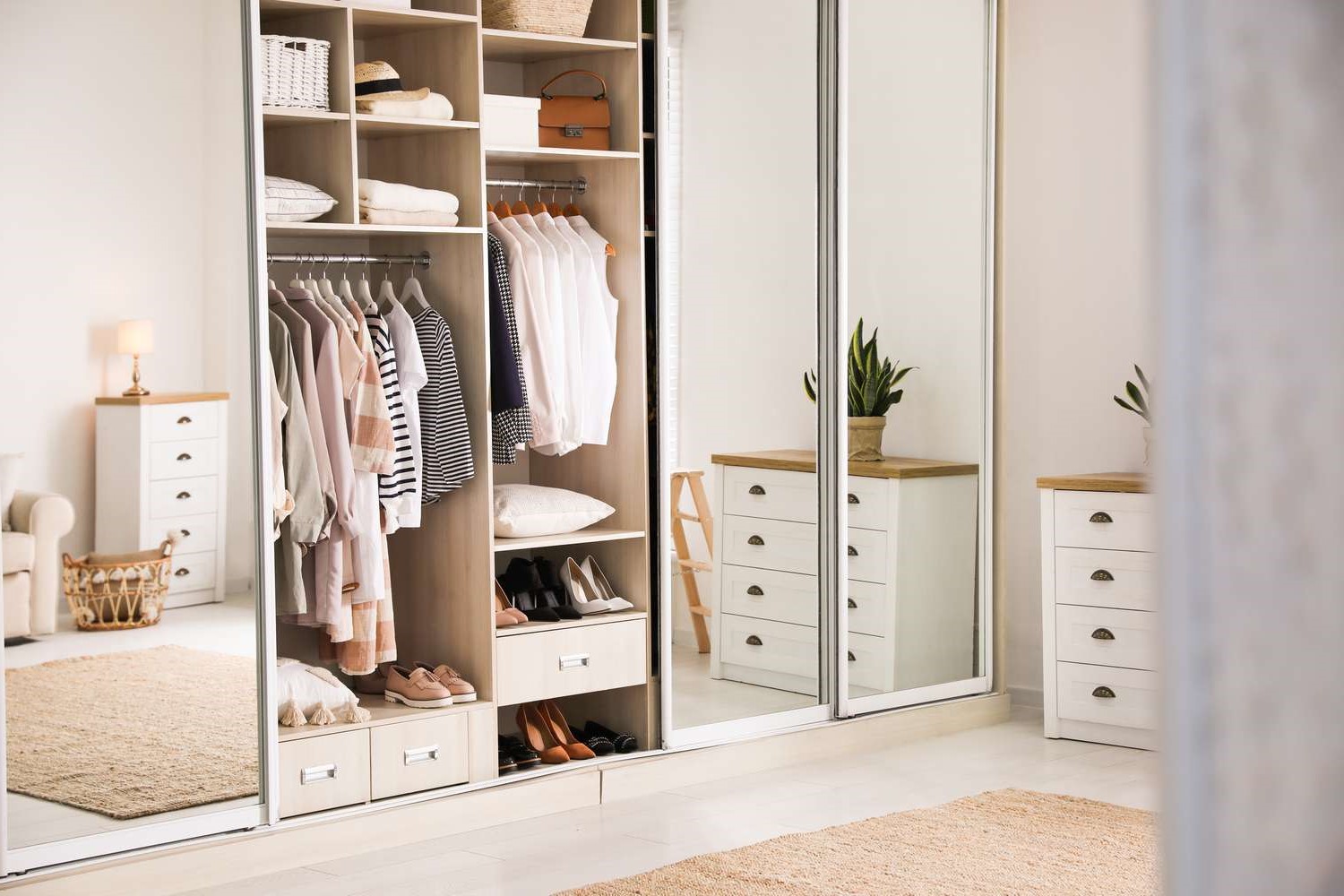
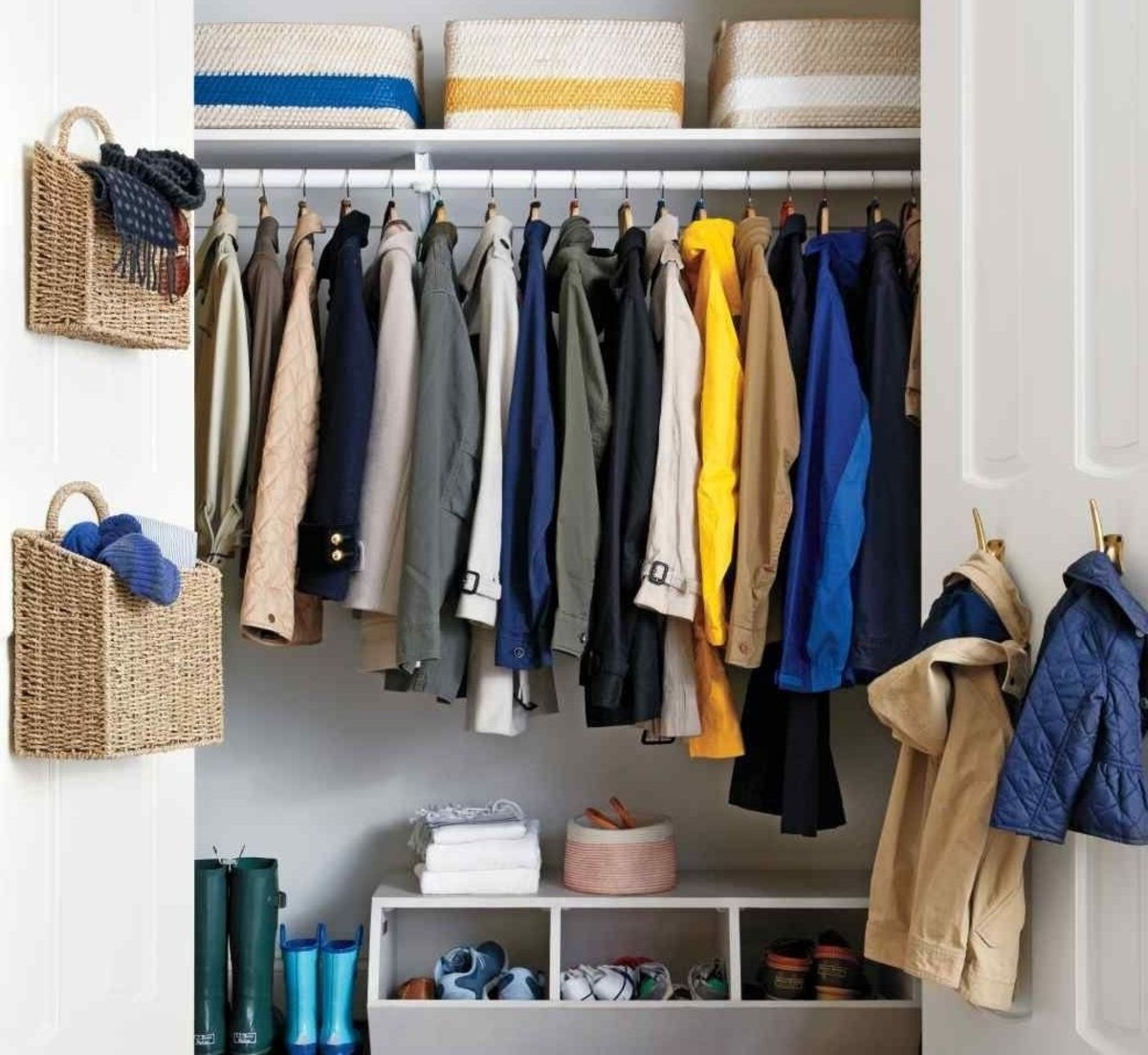
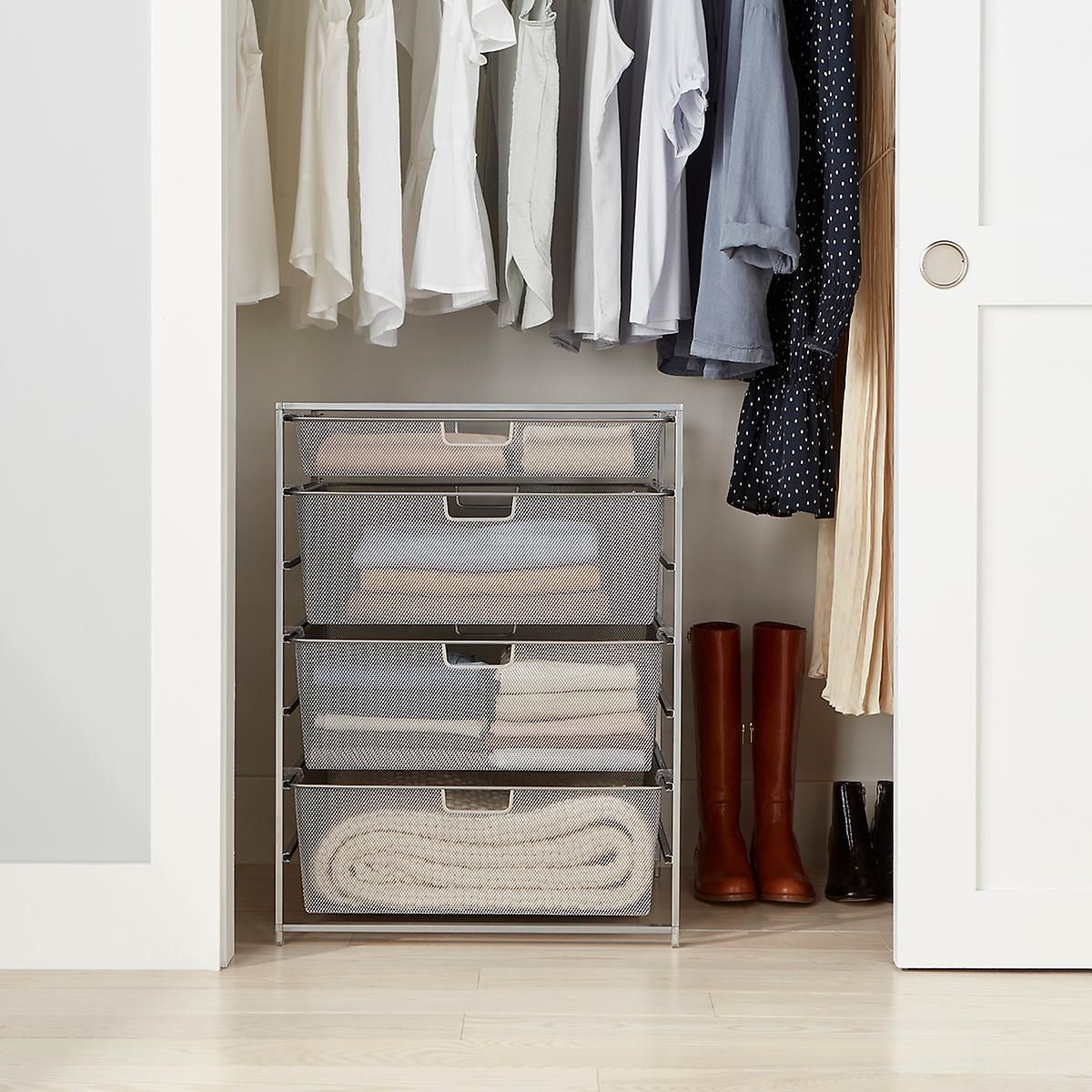
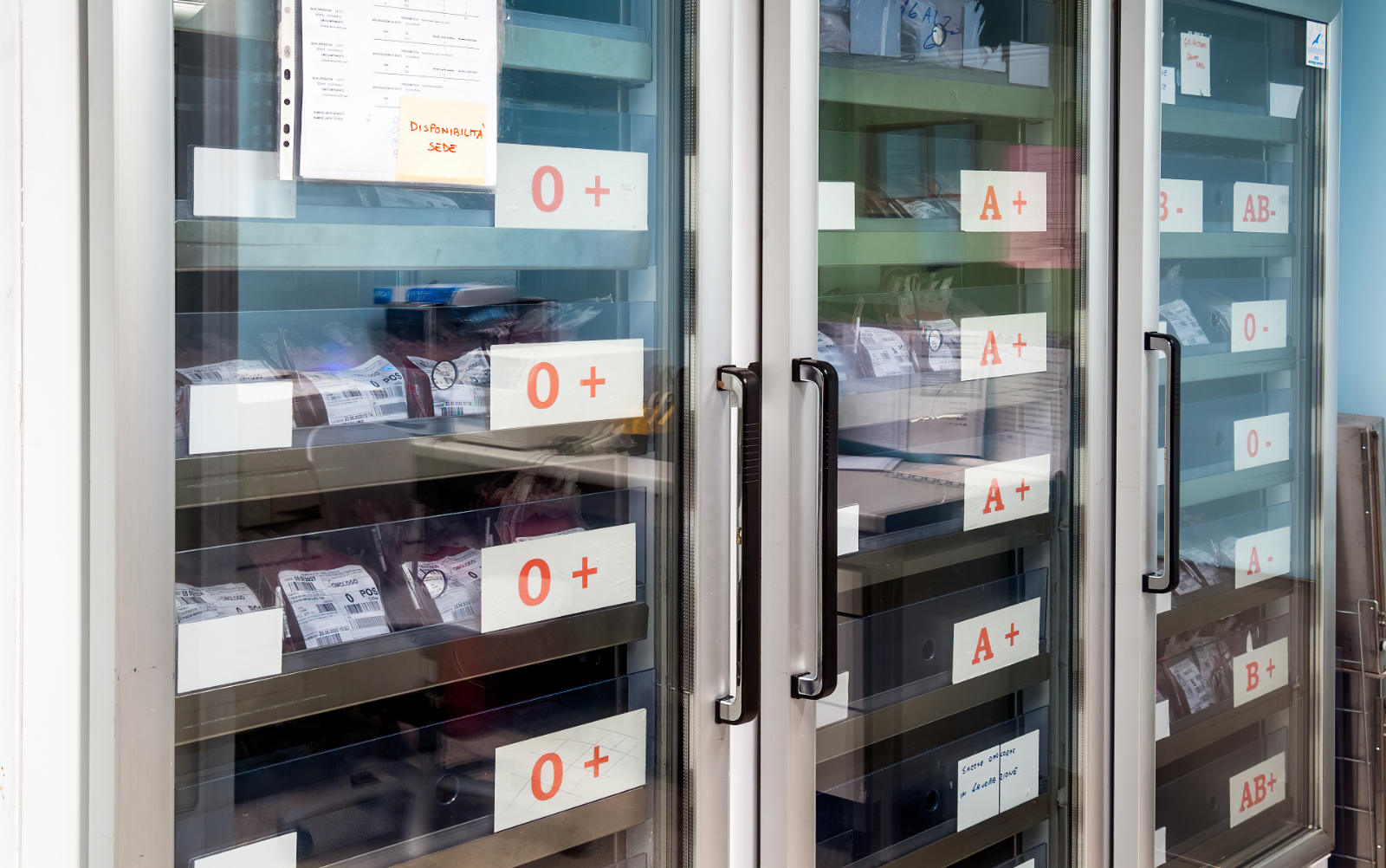

0 thoughts on “How To Organize A Craft Closet”